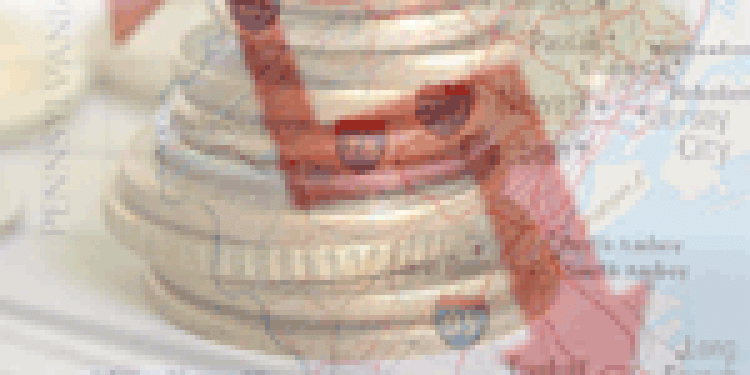Lower Tax Revenues from Online Casinos in New Jersey?
Posted: December 7, 2013
Updated: October 4, 2017
Predictions of tax revenue from the newly launched internet gambling sites in the US state of New Jersey, appear to be far-fetched

New Jersey lawmakers are expecting online gambling tax revenues to be considerably lower than previous forecasts. With the recent launch of online gambling sites in the US state of New Jersey, Governor Chris Christie predicted that the new industry would bring in $160 million of tax revenue in the first seven months.
At a tax rate of 15%, the original forecast was even more optimistic, estimating that the state would be able to collect $180 million from online casinos in the US. This value was reduced later, in the approved budget, and now New Jersey authorities are starting to express serious doubts over the accuracy of all figures previously mentioned.
New Jersey Senator Jim Whelan recently stated that the predictions were absurd from the very beginning. “From the get-go, we thought the number was, frankly, absurd. I never thought the state was going to hit the mark, even the revised mark. Both of those numbers are unrealistically optimistic”, he said.
While agreeing that the American gambling law changes that allow online casinos are beneficial, Whelan believes the final revenues will be “well under $100 million”.
As for the tax incomes generated by online casinos in New Jersey, the estimates are contrasting. A report released by Moody’s Investors service indicates that online gambling revenues would be between $250 million and $500 million in the first year, while Fitch Ratings predict a tax income of $200 - $300 million. The final figure, whatever it is, will surely be a boost to New Jersey state coffers, however.
The report released by Fitch Ratings stated: “Although some market participants will benefit, New Jersey online gambling is not going to be the savior of the (Atlantic City) casino market. In some ways, it will be detrimental because it has kept brick-and-mortar supply in the market when the level of demand dictates that some supply should be removed”.
At a tax rate of 15%, the original forecast was even more optimistic, estimating that the state would be able to collect $180 million from online casinos in the US. This value was reduced later, in the approved budget, and now New Jersey authorities are starting to express serious doubts over the accuracy of all figures previously mentioned.
New Jersey Senator Jim Whelan recently stated that the predictions were absurd from the very beginning. “From the get-go, we thought the number was, frankly, absurd. I never thought the state was going to hit the mark, even the revised mark. Both of those numbers are unrealistically optimistic”, he said.
While agreeing that the American gambling law changes that allow online casinos are beneficial, Whelan believes the final revenues will be “well under $100 million”.
As for the tax incomes generated by online casinos in New Jersey, the estimates are contrasting. A report released by Moody’s Investors service indicates that online gambling revenues would be between $250 million and $500 million in the first year, while Fitch Ratings predict a tax income of $200 - $300 million. The final figure, whatever it is, will surely be a boost to New Jersey state coffers, however.
The report released by Fitch Ratings stated: “Although some market participants will benefit, New Jersey online gambling is not going to be the savior of the (Atlantic City) casino market. In some ways, it will be detrimental because it has kept brick-and-mortar supply in the market when the level of demand dictates that some supply should be removed”.
Related content
Subscribe
0 Comments












